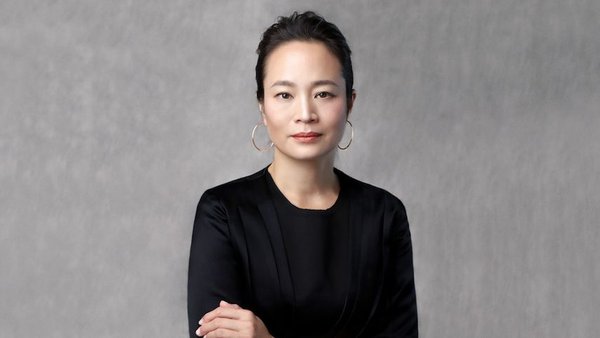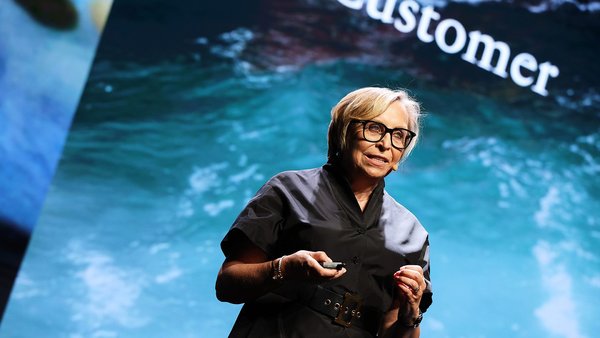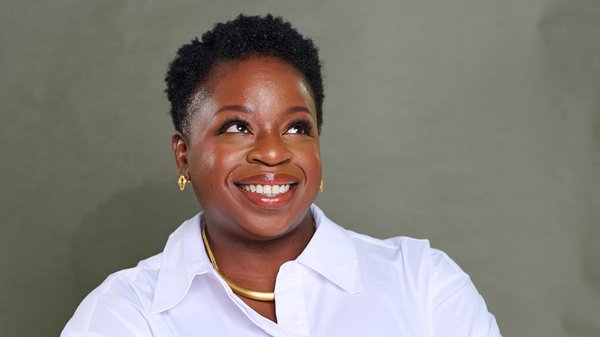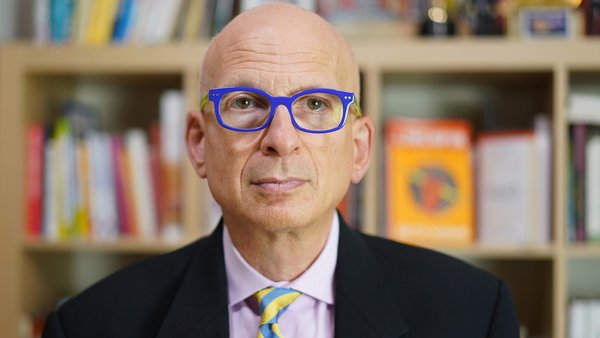Cannes Interview: Andrew Keller, Mobile jury president /
Facebook's Andrew Keller talks to Contagious about judging the Mobile category at Cannes and delivering work worthy of people’s time
Sunil Bajaj
/
With new-fangled technology offering opportunities for advertisers to reach and engage audiences, Mobile is a category that experiences its fair share of box-fresh executions.
But the Grand Prix in Mobile this year went to a campaign built on a technology first used in 1992 – SMS messaging.
Telenor’s campaign used a mobile application to enable community leaders (such as teachers and healthcare workers) to record birth rates and register people for a birth certificate in Pakistan.
Contagious spoke with Andrew Keller, Mobile jury president and VP of creative and experiential at Facebook to discuss the category.
How has the Mobile category changed since the last Cannes?
Because of the events of the last year, with other media channels making less sense to use – like in-person – it feels like brands really took Mobile to the next level. I feel like the craft was really impressive and marketers were embracing mobile in a non-gimmicky way. Typically what happens is innovation is a form of culture that you can connect an idea to, that’s what we tend to do as an industry. We work with novelty to borrow interest and use it to create news and conversation.
But brands are now using new tech to take the work to the next level. If you look at JFK Moonshot, that’s an ambitious augmented reality (AR) experience build around an AR event. There's not just a component of AR built within a bigger campaign, it's wholly AR and executed beautifully. Same with Cities from Amazon and how they leveraged TikTok and vertical video, or with Stranger Antenna and using steel wool to react with the magnetometer in smart phones. With these examples I do feel like we got past that this year, that now actually people are really thinking about the mediums, audiences and technology to leverage mobile in cool ways.
Why did Telenor win the Grand Prix over all the other effective purposeful work that achieved Gold? what gave Naming the Invisible that edge?
I would say Telenor was always up there from the very beginning, everyone was just voting it very highly. Telenor demonstrates the possibilities of creativity and the role that brands and agencies can play in the world, which is very inspiring to see. There were a few impassioned speeches from jury members about the importance of a birth certificate in what it represents to an individuals. But also, this was particularly important given the global pandemic and birth certificates providing people in Pakistan access to healthcare.
Another thing that judges love is simplicity, which is what several judges really spoke highly of with Telenor. Technology creates the opportunity to drive purpose, but also if you decide to drive purpose, you need to leverage the technology appropriately. It is about the marriage, because when you get into platform or a technology, your execution needs to be right for the idea. The accessibility was really important and appropriate for what Telenor were looking to do – I think you've got to marry those two things pretty well together. And if they're out of sync, it might dissuade you from scoring that entry highly. But when you see that they're really well in sync, it gets you more excited about the idea.
Once you have all the Golds and you start to determine what the Grand Prix is going to be, you start to think about what signal do we as a jury want to send out? We’re ultimately sending a message through the selections that we make. We needed something that had ambition, had driven change and was culturally important. Telenor really does demonstrate the positive role that mobile can play in the world and the role that it played here in Pakistan. The vote was unanimous, everybody felt like that was just the most compelling case, so that’s where we landed.
A fellow jury member said during the Mobile briefing that being ‘worth my time’ was an important criteria in the category. What does this mean?
Mobile is what we wake up with every morning. We carry it around with us all day and it’s what we go to bed with every night. This is an intimate and personal space, so it's critical that we honor and respect the time people spend there. That sets the bar very high for Mobile as we think of mobiles as our devices, not a place where marketers, advertisers and brands and businesses are welcome to move into.
When something feels really devoid of value, it feels really wrong. I think that's why purpose makes a lot of sense when activating in Mobile because that's added value for the audience. The word purpose can stretch across a continuum of definitions, but in Mobile, the word closest to it for me is empowerment. If the brand is simply trying to convert the audience into a mouthpiece for promoting them, rather than a mouthpiece for something (a shared value or goal), that’s where they can let themselves down, because where’s the value for the consumer in that?
You spoke a lot during your briefing about ‘democratisation’ and brands building campaigns with communities. Were these big factors in deciding what won the top awards?
I think as an industry we use the word inclusivity more, but that inclusivity really is today’s democratisation. Then in the Mobile category, that translates to technology that becomes accessible. The judges generally like inclusive work because it demonstrates that the brand is meeting its audiences where they are, not in some ivory tower but on the ground and figuring out how to make a connection.
The minute we start thinking about them as more as people versus these entities that have one way conversations from on high, the faster businesses accelerate into that space and realise that actually their marketing should be in collaboration with their audience and that they need to be building for where their audiences are. Those audiences are also a part of these grand collaborations now. It used to be a copywriter wrote an idea, slid it under the door to an art director, someone presented it to the client, the client took it, etc. But now you've got the community building with you, making this idea come to life. It seems obvious now, but it has been a long journey getting here.
What’s your advice to marketers who want to win a Mobile Lion next year?
Don't just go after the shiny tech. I think what we've seen this year is that it's more about which brands use technology well, rather than point-giving for what type of tech they use. The Grand Prix winning work for Telenor used SMS messaging, which is a pretty old technology but used in a smart way. Next, I would definitely recommend that the brand asks itself what good can it do for the world and how it can create real value for people. Finally, create something sustainable. I think that was something that was so special about Telenor, it was two years in the making and it can go on for as long as it needs to. We've got to move out of our campaign one-off mindsets and look to create ideas that can last, that we can invest in and that can drive impact over time.
Cannes Deconstructed /
Want to know about the best work and key trends from this year’s Cannes Lions International Festival of Creativity? Book a Contagious Cannes Deconstructed briefing for your team and we’ll deliver a week’s worth of festival insights in one hour. These can be delivered in person (depending on Covid restrictions) or virtually. Contact [email protected] for more information.
Want more of the same? /
We don’t just write about best-in-class campaigns, interviews and trends. Our Members also receive access to briefings, online training, webinars, live events and much more.







